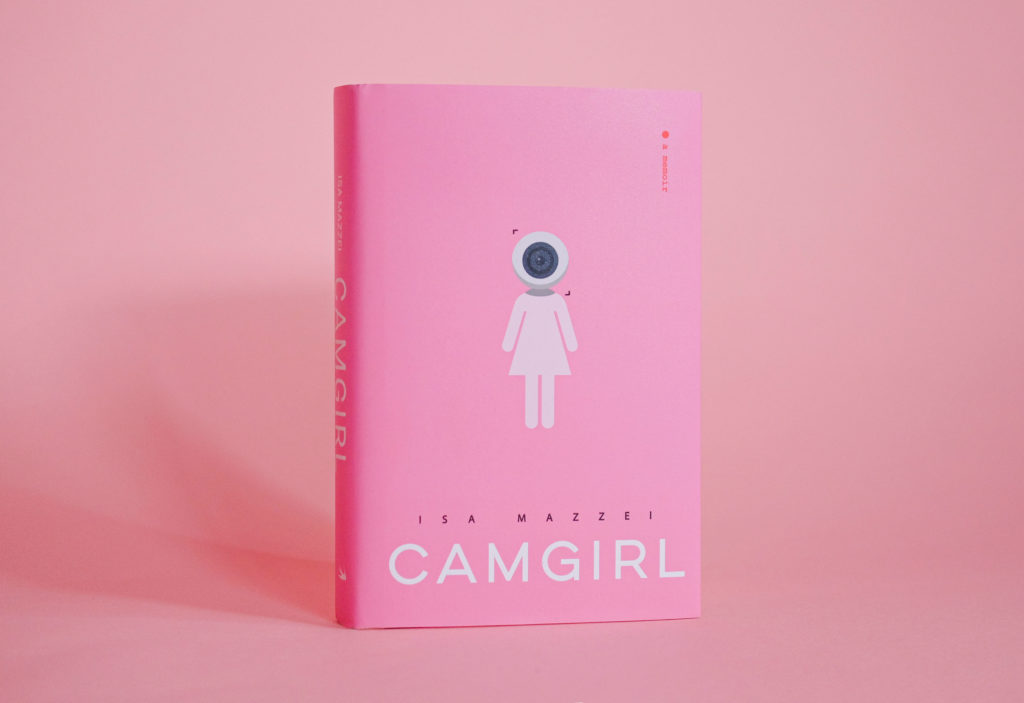
Last year, Boulder native Isa Mazzei received her first screenwriting credit for the Netflix-produced movie Cam, a supernatural thriller about a webcam model who realizes she’s been replaced by a cyber-doppelganger. This year, Mazzei got more personal and released her memoir, Camgirl, a beautifully and brutally authentic account of Mazzei’s life as a camgirl.
In her memoir, Mazzei details how she used camming to reclaim her identity and body. By addressing everything from mental health, family dysfunction, relationship dynamics and marginalization, she normalizes sex work, leaving the reader with one direct message: sex work is work.
“You’re performing, you’re filming, you’re filmmaking, you’re lighting, you’re makeup, you’re a stylist, you’re an event coordinator, you’re planning games, you have to focus on keeping your shows fresh for your viewers,” Mazzei explains. “On top of that you’re maintaining a brand, you’re doing online marketing, you’re doing social media marketing, you’re responding to emails and Snapchats and all these different types of messages, and you’re making sure your customers are feeling taken care of and feel respected.”
Camming, Mazzei says, is “the hardest job” she’s ever had.
Once a niche component of the adult entertainment industry, webcam modeling — camming — has become a multimillion (multibillion by some estimates) dollar global industry. According to 2016 research by Newsweek, there were at least 12,500 cam models and more than 240,000 viewers online at any given time.
Unlike porn, camming is live, and personalized — but what a cam model does on camera can vary greatly. It often involves erotic acts, such as stripping or masturbation, but it can be much more innocuous, depending on what a paying client requests. Models use cam sites — such as Chaturbate, LiveJasmin and MyFreeCams — to broadcast their work. Money is earned through credits or tips that allow viewers to interact with models via chat messages. Many who work in the industry say the advent of camming has given them freedom from pimps and unsafe work environments.
Mazzei says mainstream media scarcely acknowledges sex workers as anything other than victims. By doing so, Mazzei believes people overlook how commonplace sex work is, leading to mistreatment and dismissal of their profession.
“People’s main reaction to me saying, ‘Oh, I’m a camgirl,’ was, ‘Oh, but you’re so normal,’” Mazzei says. “And I would say, ‘Of course I’m normal. Sex workers are normal people, what do you expect?’” Mazzei says.

In Camgirl, Mazzei expands the focus of sex work beyond sexual acts by sharing experiences people can relate with. The first time Mazzei received attention from a boy, the time she stirred up political unrest in fifth grade, or how she studied comparative literature at UC – Berkeley all provide an understanding of the person behind the performance. She writes of how she stumbled upon camming, dissecting and consuming every aspect of it, aspiring to be the best. The outcome is a profile of a relatable woman, and insight into what Mazzei and other cammers see as a misunderstood job.
Mazzei experienced the life of an “out” sex worker in her hometown of Boulder. According to her memoir, Boulder is “renowned for its liberalism, used bookstores, having the most PhDs per capita — a bastion of suburban wine moms, white supremacy, and ninety-dollar yoga pants.” She laughs at her description of her hometown.
“I love Boulder first and foremost,” she says. “It’s my home, it’s where I grew up. It is a beautiful and lovely place that will always feel like my home, no matter where I live. I think that the one thing that I feel about Boulder is that it’s progressive until things begin to make people uncomfortable.”
Mazzei says people in Boulder are often surprised to realize there is an active sex industry in their small town.
“There are so many sex workers in Boulder, let me just tell you,” she says. “And I think it’s something that people aren’t aware of because they don’t want to be aware of it, because they’re not open to the idea of sex work being a part of the Boulder community.”
According to Mazzei’s personal experience, Boulder’s sex workers are openly mistreated and face blatant contempt.
“When [people] find out you’re a sex worker they’re so quick to be like, ‘What’s the weirdest thing you’ve ever had to do?’ ‘What’s the weirdest thing that you’ve ever stuck in your body?’” she says.

Backhanded compliments are common, Mazzei says, like one woman who told Mazzei she wished she too “could just take off [her] shirt and make millions of dollars.”
“It was such a dismissal of the work that I had done as a sex worker,” Mazzei says.
In Mazzei’s experience, people feel comfortable saying dismissive things to sex workers because they don’t see their work as valid.
“It’s not OK,” she says. “It’s incredibly dehumanizing to be in a boardroom of people being asked what’s the weirdest thing I’ve ever done sexually.”
Mazzei’s experience as a camgirl was positive, affirming and life-changing, and she knows she’s not alone, but there’s more work to be done to normalize sex work and create a safer world for sex workers.
“I would hope that one day we could move from, ‘But you look so normal,’ ‘But you went to college,’ ‘But do you need money that badly?’ to a genuine interest and genuine appreciation for these members of our community.”














